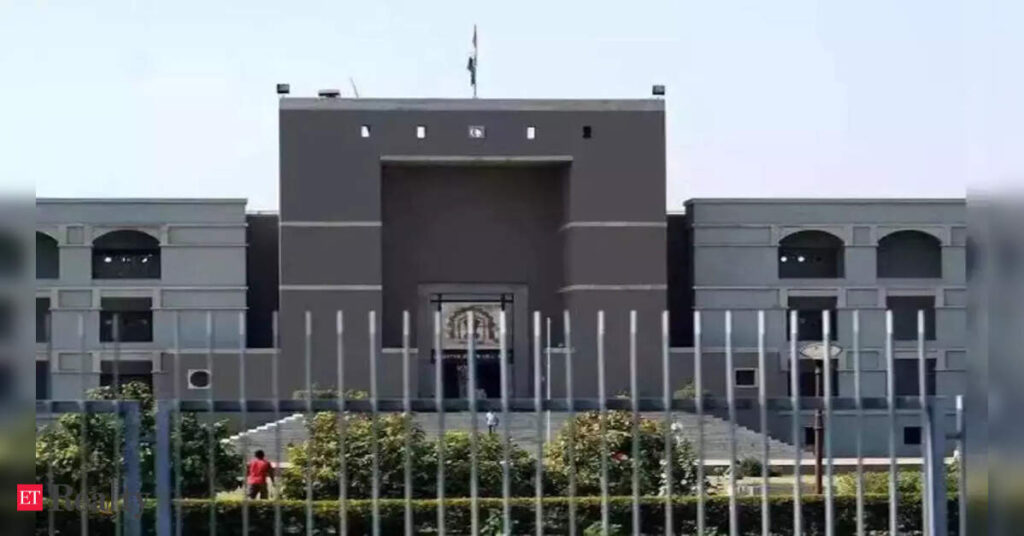A sale deed in Andhra Pradesh is one of the most critical legal documents in a real estate transaction. It acts as the primary evidence of the transfer of property ownership from a seller (vendor) to a buyer (vendee). This document is legally binding and must be registered with the state’s Registration and Stamps Department to be valid. Registering a sale deed ensures a clear title and prevents future legal disputes over the property’s ownership in Andhra Pradesh.
What are the Stamp Duty and Registration Charges in Andhra Pradesh (2025)?
When registering a property, the buyer is liable to pay certain government-mandated fees. The primary costs are the sale deed charges in Andhra Pradesh, which include stamp duty, registration fees, and transfer duty, all calculated on the property’s market value or the consideration amount, whichever is higher.
The table below outlines the primary charges applicable for registering a sale deed in Andhra Pradesh. It is important to check the official IGRS AP portal for the most current rates, as the government can revise them.
Unbeatable Price 5-Star Rated Partner! 2200+ Shades! Top Quality Paint Free Cancellation!

Get a rental agreement with doorstep delivery

Find the BEST deals and get unbelievable DISCOUNTS directly from builders!

5-Star rated painters, premium paints and services at the BEST PRICES!
| Type of Charge | Rate Applicable in Andhra Pradesh | Remarks |
|---|---|---|
| Stamp Duty | 5% of the property’s market value | This is a state tax levied on the legal document that transfers ownership. More about stamp duty can be found on our blog. |
| Registration Fee | 1% of the property’s market value | This fee is paid for the service of formally recording the transaction in government records at the Sub-Registrar’s Office. |
| Transfer Duty | 1.5% of the property’s market value | This charge is levied by local municipal bodies on the transfer of property within their jurisdiction. |
| Total Cost | 7.5% of the property’s market value | The cumulative sale deed percentage in Andhra Pradesh is 7.5% of the property’s value. |
For a comprehensive understanding of these charges within the state, you can refer to our detailed guide on stamp duty in Andhra Pradesh.
Essential Clauses in a Sale Deed (Andhra Pradesh)
A properly drafted sale deed format for Andhra Pradesh must contain several crucial clauses to be legally sound. These clauses protect the interests of both the buyer and the seller and ensure there is no ambiguity regarding the property transfer.
- Parties of the Deed: Full names, addresses, ages, and father’s names of the buyer and seller.
- Description of the Property: Complete and accurate details of the property, including its identification number, address, dimensions, and boundaries.
- Sale Consideration: The final price at which the property is being sold. It must be clearly stated in both figures and words.
- Payment Method: Details on how the sale consideration was or will be paid (e.g., bank transfer, cheque, demand draft).
- Indemnity and Encumbrance Clause: A declaration by the seller that the property is free from all legal dues, mortgages, and disputes.
- Possession Clause: A statement confirming that the seller has handed over the physical and legal possession of the property to the buyer.
- Title Clause: The seller’s declaration that they are the absolute owner and have the legal right to sell the property.
- Witnesses: The names, addresses, and signatures of at least two witnesses who were present during the signing of the deed.
- Date and Place of Execution: The date and location where the sale deed is signed.
What are the Documents Required for Sale Deed in Andhra Pradesh?
Here is a list of the key documents required and their purpose in the transaction.
- Original Sale Deed Draft: The main legal instrument prepared for property registration.
- Pattadar Passbook & Title Deed: Proof of ownership, especially important for agricultural land.
- Encumbrance Certificate (EC): Verifies the property is free from legal or financial liabilities.
- Property Tax Receipts: Confirms all property taxes have been paid up to date.
- Identity Proof of Parties: Aadhaar Card, Voter ID, or Passport of buyer, seller, and witnesses.
- Address Proof of Parties: Aadhaar Card or recent utility bills of all involved parties.
- PAN Card: Mandatory for all property transactions exceeding a specified value.
- Photographs: Recent passport-sized photos of buyer, seller, and witnesses.
- Property Card/Survey Records: Official document showing the property’s exact location and measurements.
- Demand Draft/Payment Proof: Evidence of payment for stamp duty and registration charges.
Sale Deed Registration Process in Andhra Pradesh
The following steps outline the procedure for sale deed registration charges in AP and the execution of the deed.
- Drafting the Sale Deed: The first step is to hire a legal expert or a document writer to draft the sale deed. A comprehensive sale deed format should be used, ensuring all essential clauses are included.
- Calculation of Charges: Determine the property’s market value through the IGRS AP portal and calculate the applicable stamp duty, registration fee, and transfer duty.
- Payment of Fees: Pay the calculated charges through e-stamping, franking, or by purchasing non-judicial stamp papers of the required value.
- Scheduling an Appointment: Book an appointment slot at the jurisdictional Sub-Registrar’s Office (SRO) through the IGRS AP portal.
- Visiting the SRO: The buyer, seller, and two witnesses must visit the SRO on the scheduled date and time.
- Document Submission: Present the signed sale deed and all the required supporting documents to the registering officer.
- Biometric Verification: The photographs and fingerprints of all parties are captured and verified against their Aadhaar data.
- Registration and Final Deed: Once the officer verifies all details, the deed is registered. The original document can be collected after a few days, and a receipt is issued immediately.
How to Register a Sale Deed Online in Andhra Pradesh?
The Andhra Pradesh government has launched the CARD PRIMME (Computer Aided Administration of Registration Department) portal to make the registration process easier. Accessible through the IGRS AP website, it lets citizens complete most steps online before an in-person final verification.
Here is the updated step-by-step guide:
Step 1: Draft the Sale Deed & Collect Documents
- Prepare the final sale deed and get it signed by both buyer and seller.
- Gather required documents:
- Encumbrance Certificate (EC)
- Property tax receipts
- Aadhaar & PAN cards
- Identity & address proofs
- Passport-sized photos of all parties
Step 2: Visit IGRS AP Portal
Step 3: Fill Online Application
- Choose “Document Registration”
- Fill in:
- Document type (Sale Deed)
- Property details (survey no., extent, location)
- Party details (buyer, seller, witnesses)
- Property valuation and consideration amount
- Save and submit the form
Step 4: Pay Stamp Duty and Registration Charges
- Calculate fees using the portal
- Stamp duty: 5% of property value
- Registration fee: 1% of property value
- Make payment online via the CFMS Challan system
Step 5: Book Appointment at Sub-Registrar Office (SRO)
- Select preferred SRO based on property location
- Choose a suitable date and time for document verification
Step 6: Visit the Sub-Registrar Office (SRO)
- Buyer, seller, and two witnesses must be present
- Carry originals and photocopies of all required documents
- Biometric verification (photo & fingerprint) will be done
- Final signing and document registration are completed in person
How to Download a Sale Deed in Andhra Pradesh?
If you need an official copy of your registered property document, you can get an online certified copy of a sale deed in Andhra Pradesh through the government’s IGRS portal. This is essential if your original is lost or you need it for legal purposes.
- Step 1: Go to the IGRS AP Website: Navigate to the official Andhra Pradesh Registration and Stamp Department portal at registration.ap.gov.in.
- Step 2: Locate the Certified Copy Service: On the homepage, find the ‘Services’ menu and select the option for ‘Certified Copy (CC)’.
- Step 3: Provide Document Details: You will be prompted to select your district and then enter the registration document number, the year of registration, and the captcha code as shown on the screen.
- Step 4: Register if Needed: If you are not already a member of the portal, you may need to complete a one-time registration to access the download services.
- Step 5: Download the Copy: Once the details are submitted and your document is found, you can proceed to download the certified copy. A fee may be applicable for this service.
Timeline for Sale Deed in Andhra Pradesh
| Step | Process | Estimated Time |
|---|---|---|
| 1. Agreement to Sell | Buyer and seller agree on terms and prepare a sale agreement | 1–3 days |
| 2. Document Collection & Verification | Collect all necessary documents: Title Deed, EC, ID & Address proof, PAN, Tax Receipts, etc. | 2–4 working days |
| 3. Online Slot Booking (Meeseva Portal) | Schedule an appointment at the Sub-Registrar office via the Meeseva portal | Same day |
| 4. Stamp Duty & Registration Fee Payment | Payment can be made online or at the Sub-Registrar’s office | 1 day |
| 5. Execution & Registration of Sale Deed | Both parties sign in front of the Sub-Registrar with biometric authentication and witnesses | 1 working day |
| 6. Document Scanning & Upload | Sale deed is scanned and uploaded to government records | 1–2 working days |
| 7. Final Registered Sale Deed Issued | Buyer receives the final registered copy (digital or physical) | 4–6 working days |
Sale Deed Format in Telugu
For local transactions, parties often prefer to have the document in the regional language. A sale deed format in Telugu includes the same legal clauses as an English one, but all terms are translated for clarity.
Here are some key terms found in a Telugu sale deed:
- క్రయ దస్తావేజు (Kraya Dastaveju): Sale Deed
- విక్రేత (Vikretha): Seller
- కొనుగోలుదారు (Konugoludaaru): Buyer
- ఆస్తి వివరాలు (Aasthi Vivaraalu): Property Details
- అమ్మకం ప్రతిఫలం (Ammakam Prathiphalam): Sale Consideration
- సాక్షులు (Saakshulu): Witnesses
- సంతకం (Santhakam): Signature
An excerpt from a Telugu sale deed might look like this: “ఈ క్రయ దస్తావేజు ఈ రోజున ________ (తేదీ) ________ (విక్రేత పేరు), ________ (చిరునామా) మరియు ________ (కొనుగోలుదారు పేరు), ________ (చిరునామా) మధ్య వ్రాయబడినది. విక్రేత తమ యాజమాన్యంలోని ________ (ఆస్తి వివరాలు) ను ________ (అమ్మకం ప్రతిఫలం) కు అమ్ముటకు అంగీకరించి, దాని పూర్తి హక్కులను కొనుగోలుదారుకు బదిలీ చేస్తున్నారు.”
This translates to: “This sale deed is made on ________ (date) between ________ (seller’s name), ________ (address), and ________ (buyer’s name), ________ (address). The seller agrees to sell their owned property ________ (property details) for ________ (sale consideration) and is transferring all rights to the buyer.”
Know More About Sale Deed In Various States of India
How NoBroker Can Help With Legal Services?
Navigating the complexities of property transactions and legal documentation can be challenging. NoBroker offers expert legal services to simplify this process for you. Our experienced lawyers can assist with drafting a legally sound sale deed, verifying property titles, and ensuring all your paperwork is in perfect order. We provide end-to-end assistance to make your property registration experience in Andhra Pradesh smooth, transparent, and secure, saving you from potential pitfalls and future legal issues.
Frequently Asked Questions
Ans: The total cost, including stamp duty (5%), registration fee (1%), and transfer duty (1.5%), amounts to 7.5% of the property’s market value.
Ans: Yes, you can download a certified copy of a registered sale deed through the IGRS AP portal or the associated MeeSeva online platform by providing document details and paying a nominal fee.
Ans: Yes, a registered sale deed can be cancelled through a deed of cancellation, but it requires the mutual consent of both the buyer and the seller. The process must also be registered at the SRO.
Ans: A Pattadar Passbook is a crucial document for agricultural land in Andhra Pradesh. It contains details of the landowner, the extent of the land, and any loans taken against it.
Ans: The IGRS AP (Integrated Grievance Redressal System for Andhra Pradesh) portal is the official website for the Registration and Stamps Department, offering services like document registration, encumbrance certificate search, and market value calculation.
Loved what you read? Share it with others!
 Jessica,Author
Jessica,Author
Jessica loves to read about everything and is currently deeply interested in real estate. She has 5 years of intense research experience and can bring before you well-informed articles. Jessica enjoys writing and this is seen in her work.
Source link




